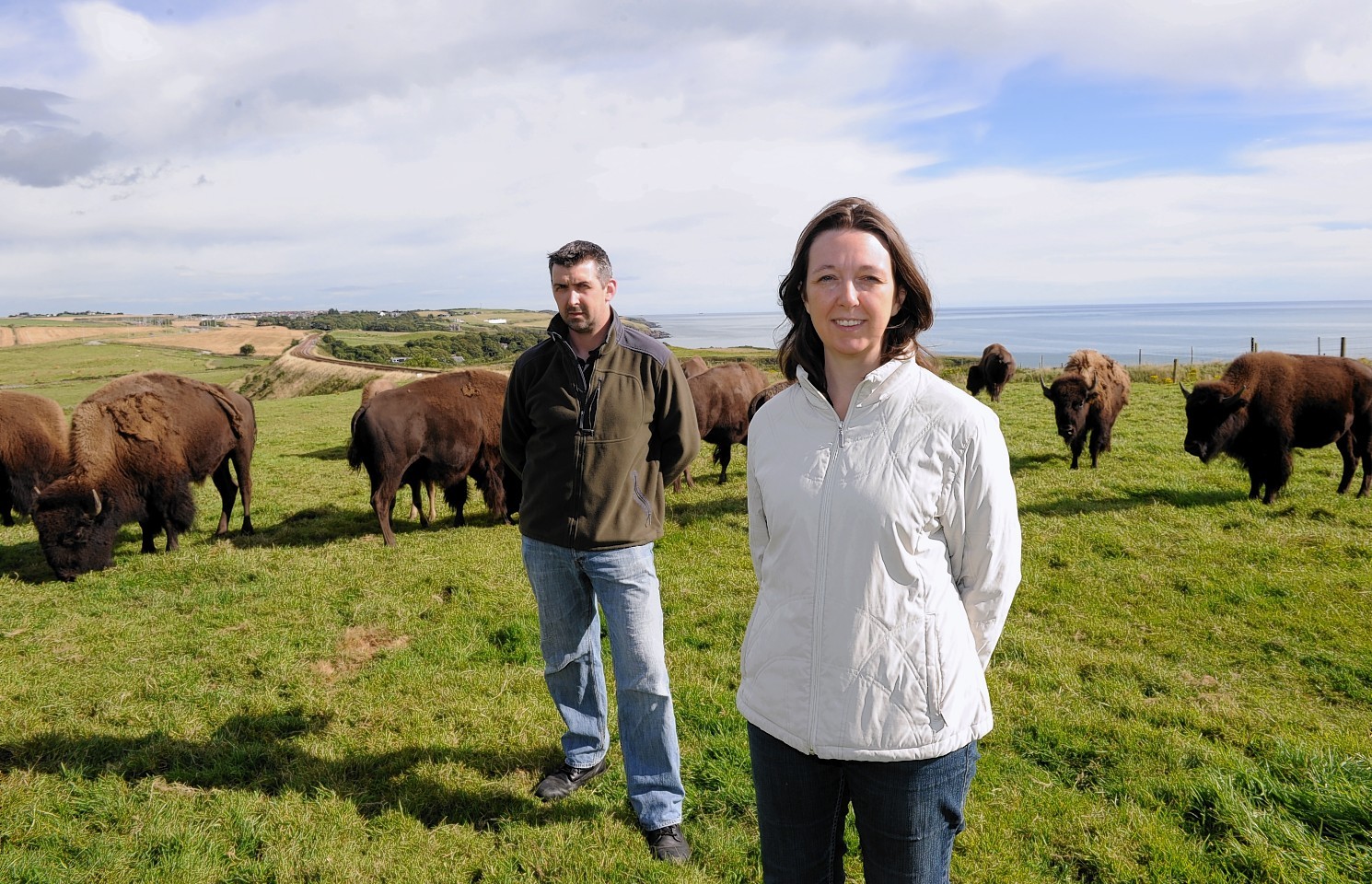The owners of Scotland’s only commercial herd of American bison, Scott Shand and his wife, Shelagh Bonner-Shand, are reeling this week after their entire herd of 43 animals were shot by marksmen on their grazings on a Deeside estate on the orders of the Scottish Government’s veterinary division.
The action to slaughter the prize-winning herd has been taken because a number of animals reacted to a TB test but Mr and Mrs Shand say they have been given no explanation as to why the whole herd had to be slaughtered.
They are also questioning the validity of the test used to condemn the animals and are incensed that vets have refused to sit down with them and explain why this drastic measure was considered necessary.
“The lack of communication is appalling,” said Ms Bonner-Shand. “We have repeatedly queried the validity and reliability of the tests applied to our herd and questioned the proportionality of the Scottish Government’s decision.”
On May 6, Mr Shand requested a meeting “as a matter of urgency” with the vets responsible for the decision to wipe out the entire herd.
An e-mailed reply from the animal health and welfare division last Friday (May 9) said their complaint was being looked into and a reply would follow within 15 days once the veterinary investigation had been completed. But the shooting of the animals went ahead on Tuesday.
The Shand’s claim that the majority of the remaining animals in the herd were clear on the two normal tests (skin test and gamma interferon) and the only test which all the bison failed was an antibody test (the stat pack test) which they knew nothing about.
“We have queried the application of the antibody test and indeed the validation of all three tests applied to our herd,” says Ms Bonner-Shand. “Of particular interest is whether these tests have been validated in bison.”
They are also concerned about the standard of record-keeping and the quality of regulatory control procedures after the results of six animals sent for post-mortem examination found no evidence of lesions and included one animal which was still alive. This was put down to a clerical error.
“The veterinary authorities seem to get away with this with impunity,” says Ms Bonner-Shand. “When we made a clerical error by inadvertently giving the ear tag number of the dam instead of the calf in a claim, we were heavily fined and prohibited from making any claim under the Scottish Beef Calf Scheme for three years.”
They have, she says, complied with every TB test required over the past eight years since the herd was founded and were the only herd in the country meeting the health standard required to sell animals for breeding.
“We have always accepted that bovine TB is a disease which should be eradicated from livestock but the system of testing and eradication must be consistent and in accordance with published policy and guidelines. We do not feel this was the case here. Would a normal cattle herd have been slaughtered in the same circumstances?”
Mr and Mrs Shand won the judge’s choice award for a “stand out” product for their range of sirloin steaks, diced beef and burgers at the Grampian Food Innovation awards two years ago.
The herd was initially located at Muchalls but moved to Deeside earlier this year when their lease of grazings at Muchalls ran out.
Both Mr and Mrs Shand have full-time jobs, Mr Shand as an electrician in the construction industry and his wife with the NHS.
A Scottish Government spokeswoman said last night: “Tests have confirmed the widespread presence of TB infection in a herd of bison. As a consequence the remaining animals in the herd have been slaughtered.
“There are no implications for Scotland’s official TB free status arising from this herd slaughter and no public health implications.”
